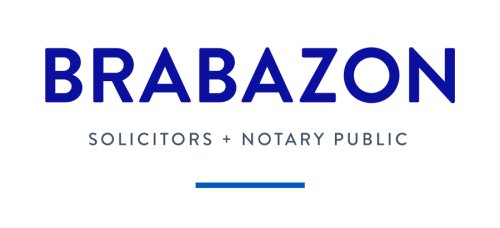Best Employment Benefits & Executive Compensation Lawyers in Ireland
Share your needs with us, get contacted by law firms.
Free. Takes 2 min.
Or refine your search by selecting a city:
List of the best lawyers in Ireland
About Employment Benefits & Executive Compensation Law in Ireland
Employment Benefits & Executive Compensation law in Ireland encompasses the legal framework governing employee benefits, salaries, bonuses, pensions, and other forms of compensation offered to employees. This area of law addresses the design, implementation, and compliance of compensation packages to ensure they meet legal obligations while serving the best interests of both employers and employees. Key considerations include aligning compensation with business goals, tax efficiency, and regulatory compliance requirements, particularly post-Brexit adjustments and evolving EU regulations.
Why You May Need a Lawyer
Seeking legal advice in Employment Benefits & Executive Compensation can be necessary in several situations. Employers may need guidance on structuring compensation packages to attract top talent while ensuring compliance with Irish employment laws and tax regulations. Employees might seek legal assistance to understand their rights regarding remuneration, dispute resolutions over bonus entitlements, or negotiations for severance packages. Legal counsel is also advisable when navigating complex share option schemes or pension arrangements, mergers and acquisitions, and expatriate tax issues.
Local Laws Overview
Employment Benefits & Executive Compensation in Ireland operate under a framework of national and EU laws. Key regulations include the Employment Equality Acts, which protect against discrimination; the National Minimum Wage Act, setting minimum payment standards; and the Pensions Act, guiding the provision of pension benefits. Additionally, the Taxes Consolidation Act impacts the taxation of benefits and compensation. Equal Pay and the Organisation of Working Time Act are also vital in maintaining fair compensation practices. Ongoing compliance with these legislative requirements is essential for employers and provides critical legal protections for employees.
Frequently Asked Questions
Are employers in Ireland required to offer pension schemes?
Yes, employers in Ireland are generally expected to provide access to pension schemes, although specific obligations can vary based on the employment context and business size.
What is the difference between salary and executive compensation?
Salary typically refers to the base pay an employee receives for their work. Executive compensation can include salary but also encompasses additional benefits such as bonuses, stock options, and retirement packages designed for higher-level management.
How are bonuses taxed in Ireland?
Bonuses in Ireland are considered taxable earnings and are subject to income tax, Pay Related Social Insurance (PRSI), and Universal Social Charge (USC).
Can an employer change the terms of my employment benefits?
An employer may not unilaterally change the terms of employment benefits without employee consent, unless explicitly allowed by the contract or in compliance with legal frameworks.
What should I do if I believe I'm being compensated unfairly?
Consulting with a legal professional can help determine if you have grounds for a claim based on discrimination or breaches of contract. They can also assist in negotiating with your employer.
How does the National Minimum Wage impact benefits and compensation?
The National Minimum Wage establishes a baseline for pay, influencing the structuring of overall compensation packages to remain legally compliant.
What are share option schemes?
Share option schemes provide employees the opportunity to purchase company shares at a predetermined price, often used as incentives for long-term commitment and performance.
Are there legal requirements for severance packages in Ireland?
Severance packages may be subject to statutory redundancy payments; however, the terms can vary based on individual employment contracts and collective agreements.
Can I seek legal advice anonymously?
Initial legal advice can often be obtained with confidentiality assured, but full anonymity may not be possible if you require comprehensive legal action.
How do I resolve disputes over executive compensation?
Disputes can often be addressed through negotiation or mediation, but formal legal proceedings may be necessary if an agreement cannot be reached.
Additional Resources
For further assistance, consider reaching out to the following resources:
- The Workplace Relations Commission (WRC) offers guidance on employment rights and dispute resolutions.
- The Pensions Authority provides detailed information on pension-related queries and compliance.
- The Citizens Information website offers comprehensive insights into employment rights and benefits.
- Professional bodies such as the Chartered Institute of Personnel and Development (CIPD) can offer additional information and support.
Next Steps
If you are in need of legal assistance in Employment Benefits & Executive Compensation, start by documenting any relevant details of your case, including contracts, correspondence, and any communications with your employer. Contact a legal professional who specializes in employment law to discuss your situation and explore your options. An initial consultation can help you understand the potential legal paths and outcomes. Stay informed about your rights and ensure compliance with all legal obligations. Consider joining a trade union or professional organization for additional support and resources.
Lawzana helps you find the best lawyers and law firms in Ireland through a curated and pre-screened list of qualified legal professionals. Our platform offers rankings and detailed profiles of attorneys and law firms, allowing you to compare based on practice areas, including Employment Benefits & Executive Compensation, experience, and client feedback.
Each profile includes a description of the firm's areas of practice, client reviews, team members and partners, year of establishment, spoken languages, office locations, contact information, social media presence, and any published articles or resources. Most firms on our platform speak English and are experienced in both local and international legal matters.
Get a quote from top-rated law firms in Ireland — quickly, securely, and without unnecessary hassle.
Disclaimer:
The information provided on this page is for general informational purposes only and does not constitute legal advice. While we strive to ensure the accuracy and relevance of the content, legal information may change over time, and interpretations of the law can vary. You should always consult with a qualified legal professional for advice specific to your situation.
We disclaim all liability for actions taken or not taken based on the content of this page. If you believe any information is incorrect or outdated, please contact us, and we will review and update it where appropriate.
Browse employment benefits & executive compensation law firms by city in Ireland
Refine your search by selecting a city.
















